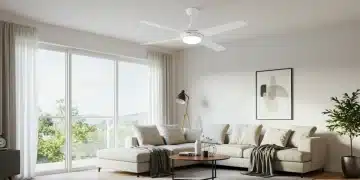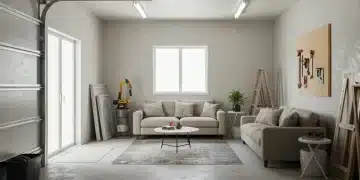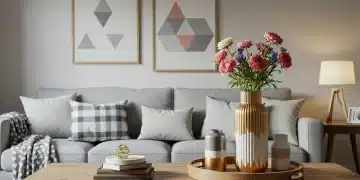Mind and Space: A Practical Guide to Home Organization
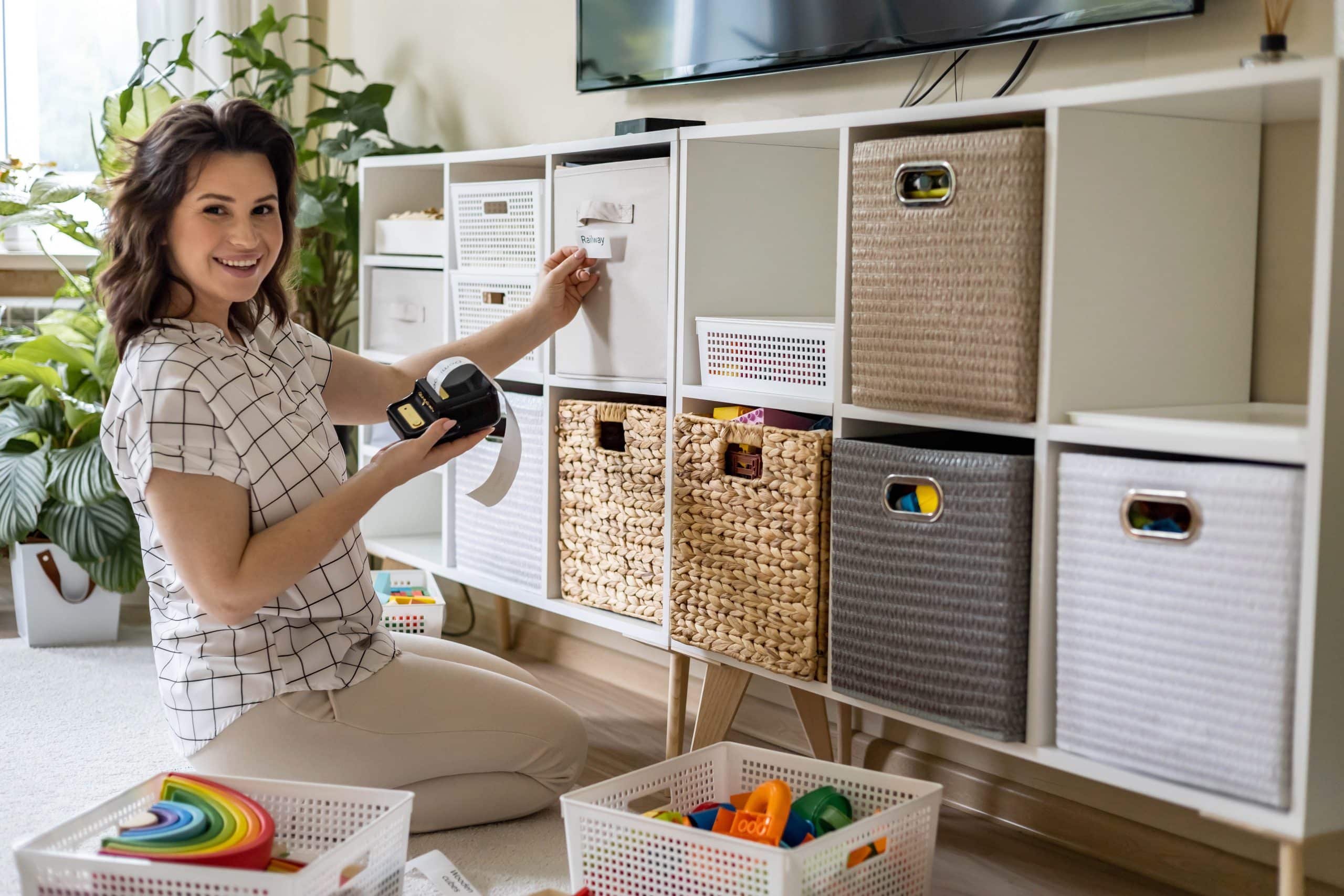
Organization and Space
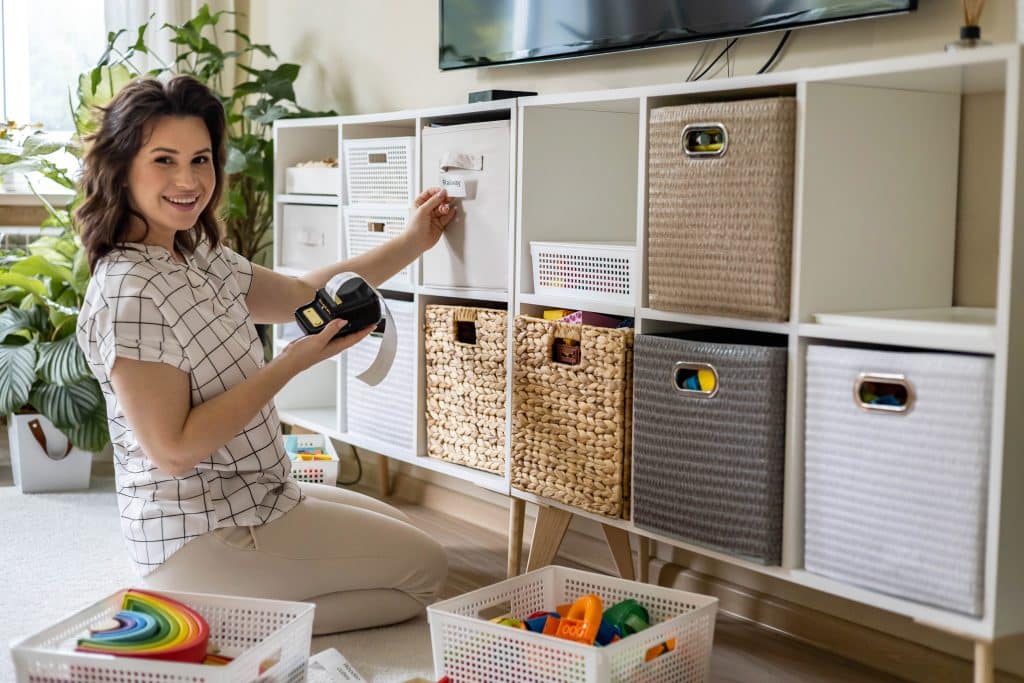
Discover how organization and smart use of space can transform your home, boost productivity, and improve well-being. Practical tips, strategies, and room-by-room examples to simplify life.
Why Organization and Space Matter
The way we organize our surroundings deeply influences the way we think, feel, and act. A cluttered home often leads to stress, distraction, and wasted time. An organized environment, on the other hand, brings peace, efficiency, and a sense of control. When our physical environment is balanced, the mind feels lighter and more focused.
Organization is not just about tidying up objects. It’s about building systems that simplify routines, reduce decision fatigue, and free mental energy. By designing functional spaces, you create an environment that supports productivity and allows the mind to concentrate on what truly matters.
The Connection Between Space and Mind
An organized space directly impacts mental clarity. A messy room often mirrors a cluttered mind, making it harder to relax or stay motivated. A tidy space, however, sends signals of calm and structure to the brain. This helps lower stress levels and allows the mind to generate new ideas more freely.
Mental Energy and Daily Routines
Every item in your home affects your mental energy. Too much clutter creates constant background stress that drains the mind. When you introduce order through routines and storage systems, you reduce noise and give your mind more room to focus. This is why decluttering is often the first step toward productivity and balance.
A Balanced Mind for a Balanced Life
Organized environments create harmony between external and internal worlds. When your home feels functional and predictable, the mind relaxes more easily. Balance does not require perfection. It comes from creating spaces that work for you and support your lifestyle, allowing the mind to stay calm and clear.
Organization as Self-Care for the Mind
Treat organization as self-care. Every drawer sorted and every shelf arranged reduces hidden stress. The more you bring structure into your environment, the freer your mind becomes. With less chaos around you, it’s easier to enjoy creativity, rest, and meaningful relationships.
🏡 Organizing Physical Space: Room-by-Room Transformation
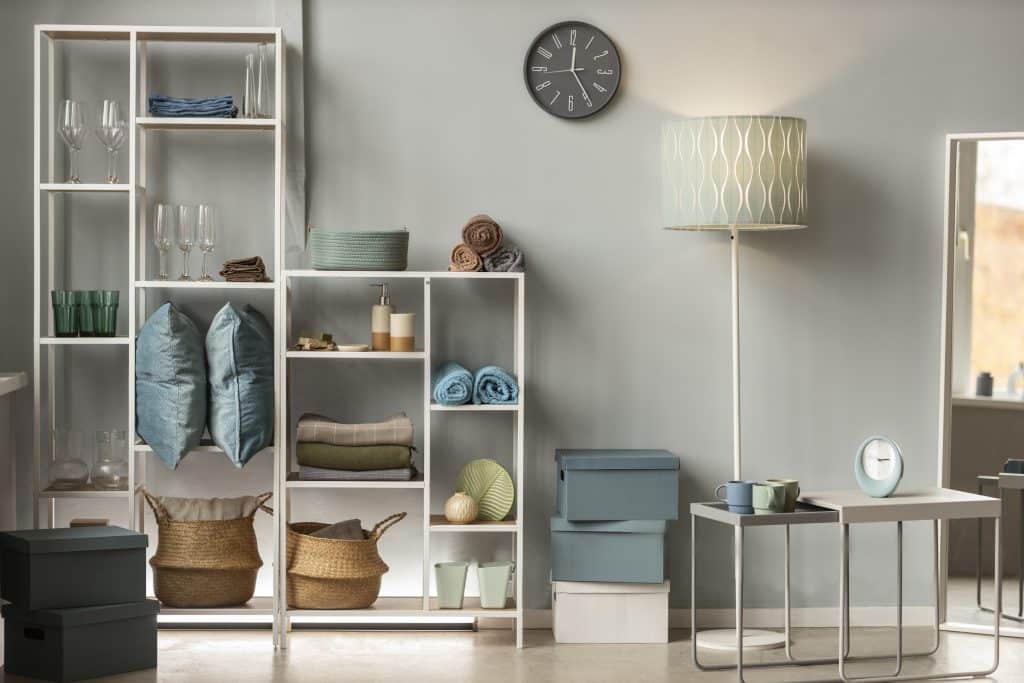
1. Living Room: The Heart of the Home
The living room is often the center of family life. It’s where conversations flow, laughter happens, and guests feel most welcomed. An organized living room creates not only visual harmony but also a calmer mind that feels at peace in the environment.
Less is always more when it comes to this space. Keeping only items that add function or beauty prevents unnecessary clutter. Too many decorations may look charming at first but often create visual noise that overwhelms the mind instead of relaxing it.
Hidden storage solutions can transform the atmosphere. Ottomans with built-in compartments, TV stands with drawers, and decorative baskets keep essentials out of sight. These small adjustments make the living room feel lighter, leaving the mind free to focus on connection and comfort.
A balanced design is also key. Open areas and clear pathways prevent the room from feeling crowded. When space feels open and breathable, the mind naturally mirrors that calmness and becomes more focused.
Apply the “one-minute rule.” If something takes less than a minute to put away — like folding a blanket or placing the remote control in a basket — do it right away. This simple habit prevents clutter from building up and helps maintain a clear mind every day.
2. Kitchen: The Hub of Daily Life
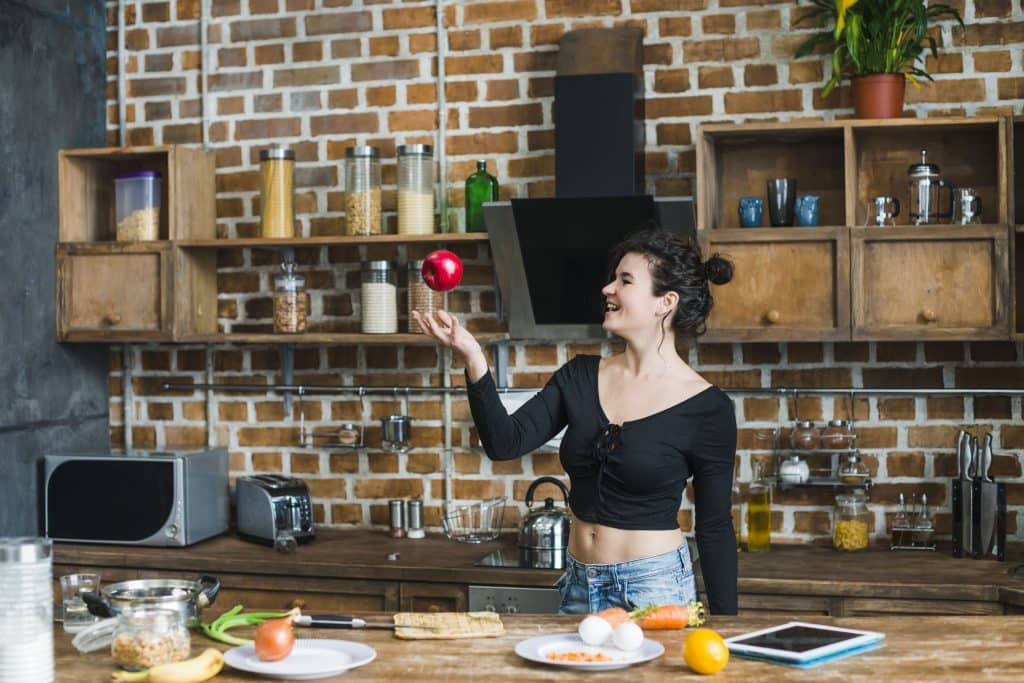
The kitchen is one of the most used spaces in any home. It can either be your greatest ally or your biggest source of stress. An organized kitchen doesn’t just make cooking easier — it also creates peace of mind, saving time and energy for what truly matters.
Decluttering countertops is the first step. Keep only essentials in sight, such as a coffee maker, fruit bowl, or cutting board. When surfaces are clear, the space feels more open, and the mind can focus on creativity in cooking rather than being distracted by clutter.
Grouping by function is another powerful strategy. Place baking tools together in one section, cooking utensils in another, and cleaning products in a separate spot. This system reduces confusion and helps the mind stay calm when preparing meals, especially on busy days.
Labeling jars and containers is more than just a visual upgrade. It prevents food waste, keeps shelves consistent, and brings a sense of order that directly supports a clearer mind. Opening a pantry where everything is easy to find creates a feeling of control and efficiency.
Extra Hack: Create a dedicated “meal prep zone.” Keep knives, cutting boards, and storage containers ready in one spot. This simple step streamlines cooking and reduces decision fatigue, giving your mind more freedom to enjoy the process instead of stressing about missing tools.
3. Bedroom: A Sanctuary for Rest
The bedroom should feel like a true sanctuary. It is not meant to be a storage room but a place where the body rests and the mind finds peace after a long day.
A proper closet system makes a big difference. Using the same type of hanger creates visual uniformity, which instantly reduces chaos. When clothes are displayed neatly, the mind feels calmer and more in control.
Seasonal rotation also helps. Out-of-season clothes can be stored in bins under the bed or in labeled boxes. This frees up space for the items you actually use daily, helping the mind avoid unnecessary decisions and clutter.
Keeping the bedroom an electronics-free zone is essential. Limiting screens such as TVs, tablets, and phones improves sleep quality. A clear and quiet environment allows the mind to disconnect and recharge fully at night .Apply the “90/90 rule.” If you haven’t worn or used an item in the last 90 days and won’t in the next 90, donate it. This simple habit not only declutters your space but also clears mental weight, giving your mind more room for rest and creativity.
4. Bathroom: Maximizing Small Spaces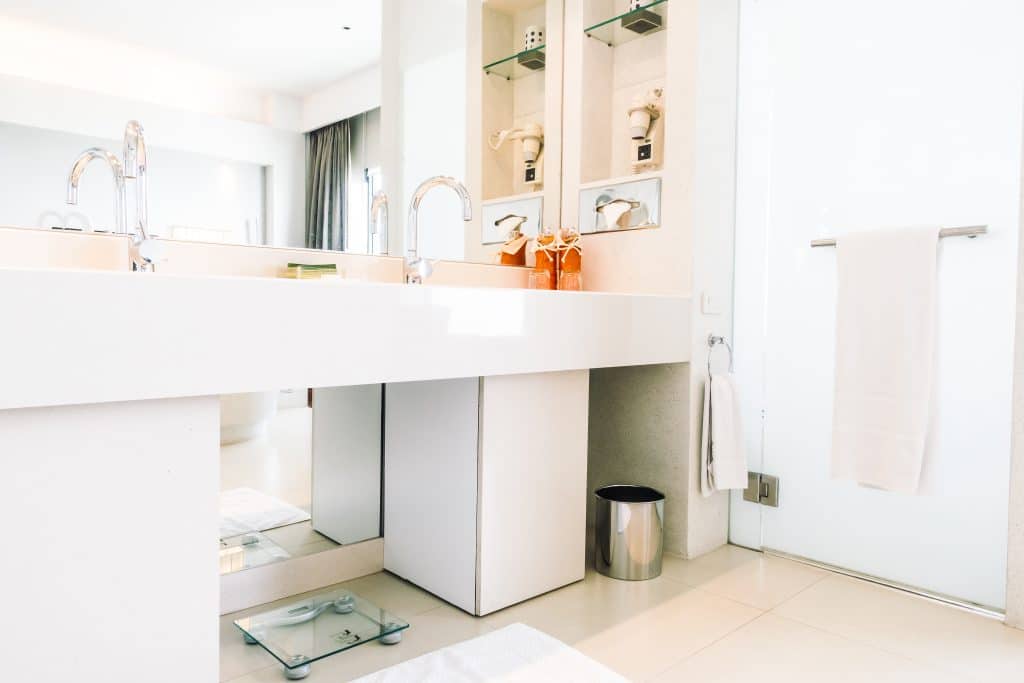
Bathrooms are usually among the smallest rooms in a home, yet they are used every day. Because of this, even small improvements in organization can have a big impact on both functionality and peace of mind.
Vertical storage is a powerful solution. Installing shelves above the toilet or sink instantly creates more room without taking up floor space. A well-arranged wall makes the bathroom feel more open, giving the mind a sense of order and balance.
Decluttering products is another key step. Many bathrooms are crowded with half-used bottles, expired creams, and random items. Keeping only what you actually use daily not only frees space but also helps the mind feel lighter every time you step inside.
Drawer dividers make organization effortless. By separating brushes, makeup, and toiletries into specific compartments, you prevent chaos from building up. A drawer where everything has its place supports a calm mind and makes morning routines smoother.
Add a small basket or tray on the counter for everyday essentials. This limits clutter and ensures the bathroom remains a space where the mind can start and end the day in peace.
5. Home Office: Boosting Productivity at Home
| Element | Description | Benefits |
|---|---|---|
| Minimalist Desk | Keep only essential items on the surface to reduce distractions. | Clear space encourages focus and improves task efficiency. |
| Digital Organization | Use apps like Notion, Trello, or Evernote to manage files and projects. | Prevents digital chaos, reduces stress, and helps with smooth workflow transitions. |
| Lighting | Maximize natural light during the day and add warm lamps for evenings. | Boosts energy and focus while maintaining a cozy atmosphere at night. |
| Ergonomic Chair | Choose a chair that supports posture and reduces physical strain. | Enhances comfort, prevents fatigue, and allows the mind to concentrate fully. |
With remote work becoming more common, the home office is no longer a luxury but a necessity. This space must be functional and motivating, supporting both productivity and peace of mind throughout the day.
A minimalist desk is the first step. Keeping fewer items on the surface means fewer distractions. When the workspace is clear, the mind can stay focused on essential tasks instead of wandering to clutter.
Digital organization is equally important. Structuring files in folders and using apps like Notion, Trello, or Evernote prevents digital chaos. A well-ordered system reduces stress and helps the mind transition smoothly between projects.
Lighting also plays a key role. Natural light boosts energy and focus, while warm lamps make the environment feel cozy during late hours. A balanced lighting setup supports both productivity and a calm mind.
Invest in an ergonomic chair. Comfort is just as important as organization because physical strain can distract the mind from meaningful work. When the body feels supported, the mind is free to concentrate fully.
Maximizing Space: Making the Most of What You Have
Living in a small home doesn’t mean you need to live with limitations. With smart design principles, any space can feel bigger, more functional, and more inviting. The secret is to create balance between efficiency and comfort so both your body and your mind can thrive.
Using vertical space is one of the easiest strategies. Shelves, hooks, and hanging storage free up the floor and create organized areas for everyday essentials. When everything has a clear place, the mind feels calmer and less overwhelmed.
Multifunctional furniture is another powerful solution. Sofa beds, foldable desks, and expandable tables allow one piece to serve multiple needs. This not only saves space but also reduces clutter, giving your mind fewer decisions to worry about.
Decluttering regularly is essential in small homes. The less you own, the more room you gain — both physically and mentally. Every time you remove items you don’t need, you also give your mind permission to let go of unnecessary weight.
Zoning adds flow and function to limited areas. Dividing spaces for different purposes, like using a rug to separate the living area from the dining corner, helps the mind instantly recognize how each area should be used. This makes daily routines smoother and more intentional.
Mirrors are a simple yet effective design trick. When placed strategically, they create the illusion of more space and reflect natural light. The result is a brighter home that uplifts your mood and helps the mind feel more open and energized.
🧠 Organizing the Mind: Mental and Emotional Clarity

A cluttered mind is just as draining as a messy room. Mental organization is key for balance and productivity.
Routines and Habits
Daily routines create structure that benefits both productivity and peace of mind. Using a to-do list or task management app helps organize priorities and reduces decision fatigue. When tasks are written down, the mind no longer carries the mental load of remembering everything.
Scheduling your week every Sunday evening is another powerful habit. This small practice gives the mind a clear roadmap, lowers stress, and helps you start each day with confidence. Knowing what’s ahead makes it easier to stay calm and focused.
The Pomodoro Technique is one of the most effective ways to manage focus. Working for 25 minutes of deep concentration followed by a 5-minute break keeps the mind sharp while preventing burnout. These structured pauses give your brain time to recharge and maintain high performance.
Financial Organization
Money stress is one of the most common causes of anxiety, and financial clutter often translates into mental clutter. Bringing order to your finances not only strengthens your budget but also creates peace of mind.
Apps like Mint, YNAB, or Mobills make it simple to track expenses and visualize where your money goes. By organizing numbers on a screen, the mind gains clarity and avoids the constant worry of the unknown.
Applying the 50/30/20 rule is another effective system: 50% of income for needs, 30% for wants, and 20% for savings or investments. This structure helps the mind feel secure because spending and saving are already planned.
Building a 3–6 month emergency fund is essential. Knowing you have a financial cushion in place provides long-term peace of mind, reduces stress during uncertain times, and allows for better focus on personal goals.
Emotional Space
Just like a room can become cluttered, so can the mind. Creating emotional space ensures balance and resilience in everyday life.
Practicing meditation with apps such as Headspace or Calm trains the mind to slow down and remain present. Even a few minutes a day can lower stress and improve mental clarity.
Journaling is another effective method. Writing thoughts and feelings on paper helps the mind process emotions and release unnecessary tension. This habit clears internal clutter the same way tidying up clears physical space.
Digital decluttering is equally important. Cleaning your inbox, deleting unused apps, and organizing photo galleries may seem simple, but it brings a surprising sense of relief. A lighter digital space supports a lighter mind, free from constant notifications and distractions.
Benefits of Organization and Space
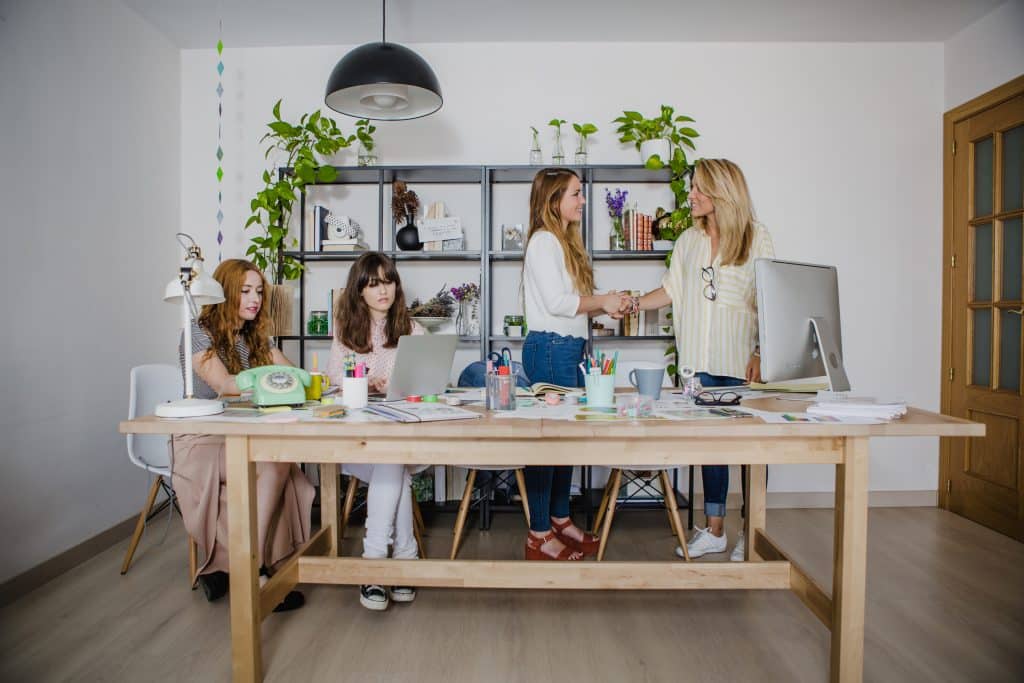
Less Stress – A clean and structured environment immediately reduces anxiety. When the home feels orderly, the mind no longer needs to process visual chaos or worry about unfinished tasks. This sense of calm creates more space for relaxation and creativity.
Better Health – Organized spaces are easier to clean and maintain. With fewer allergens, dust, and mold, your body stays healthier. At the same time, the mind benefits from knowing that your environment is safe and supportive of your well-being.
Higher Productivity – Clear space equals clear focus. A desk free of clutter allows the mind to dive deeper into important tasks without distractions. This makes it easier to stay motivated and achieve goals faster.
More Time – Organization saves countless hours. When everything has a place, you no longer waste time searching for lost items. This frees your mind to focus on meaningful activities, whether that’s work, hobbies, or spending time with loved ones.
More Money – An organized home prevents unnecessary purchases. By knowing exactly what you own, you avoid buying duplicates or replacing items you thought were lost. This financial clarity reduces stress and brings peace of mind.
Better Relationships – A harmonious home improves social life. When spaces are welcoming and clutter-free, it’s easier to invite friends and family over. The mind also feels lighter in these environments, allowing you to connect with others more fully.
Practical Tips to Start Today
Starting with just 10 minutes a day can transform your environment. Small, consistent actions prevent overwhelm and create steady progress. This approach also keeps the mind motivated, since large cleaning projects often feel discouraging. A short daily routine builds momentum that lasts.
The 1-in-1-out rule is a simple but powerful method. Whenever you bring something new into your home, remove one item you no longer need. This keeps clutter under control and prevents excess from building up. By practicing this habit, the mind feels lighter, knowing that balance is maintained.
Creating a zen corner at home adds a personal sanctuary for relaxation. It doesn’t need to be large — just a chair with soft lighting, a plant, or a candle. This space signals to the mind that it’s time to slow down, recharge, and enjoy calm moments away from daily stress.
A monthly review of clutter in every room helps maintain long-term order. Going through drawers, closets, and digital files once a month ensures that unnecessary items don’t pile up again. This regular check-in also refreshes your home and gives the mind a sense of accomplishment and control.
✨ Final Thoughts
Organization and space go far beyond aesthetics. They are tools that shape how you live, how you feel, and how your mind functions every single day. A clutter-free environment makes room for clarity, focus, and peace of mind.
When every object has a purpose and every space feels intentional, you gain more than just order. You gain freedom — the freedom to use your time wisely, to feel calmer in your routines, and to focus your mind on the things that truly matter.
The journey doesn’t require perfection. Start small with daily habits, build consistent systems, and watch how little changes create long-term transformation. By organizing your home and your routines, you also create a healthier, more balanced mind that supports lasting well-being.

